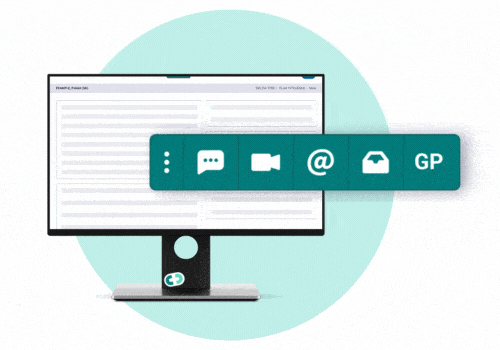‘Data fit for sharing’ is goal of new guidance
- 26 April 2006
Guidance to help general practices start a massive clean-up of data in their IT systems has been launched by Connecting for Health, NHS Employers and the British Medical Association.
Dr Gillian Braunold, joint GP clinical lead at Connecting for Health (CfH) said: “Data fit for sharing is the biggest challenge for joining up the digital islands of care.”
Speaking at a conference of GPs in London, jointly hosted by CfH and the NHS Alliance, Dr Braunold launched the guidance to help practices in England implement the section the new directed enhanced service (DES) on data accreditation – and receive payment in recognition of the work involved.
The guidance describes the quantitative and qualitative assessments that will be made of a practice’s data before accreditation is awarded. Once the accreditation standard has been achieved, the practice will be eligible to join the NHS care record service and share its patients’ summaries. The list of accredited practices will be published and made available to the public.
Dr Braunold emphasised the importance of the exercise. “If you go round practices and see what they are recording, you see they are recording for themselves,” she said.
While useful within the practice, this stores up problems when notes are transferred to a new practice or shared in the way that CfH envisages for the future.
Dr Braunold gave the example of asthma (Read Code H33). It was possible to record asthma in a patient’s record and qualify it with free text saying “Mother has”. If the GP uses this only for his or her own reference, its meaning as reference to a patient’s family history of asthma is preserved. However, to be safely transferred or shared, it should have a family history code, which is an entirely different Read Code.
The new guidance states: “As notes start to flow electronically around the health economy, it is critical that patient records are not misleading and are as complete as possible.”
It lists three challenges impeding the accurate transfer of records and says the IM&T DES is intended to help GPs rise to them:
• The common practice of a clinician putting some information on paper and some onto the computer which leads to the fragmentation of records.
• GPs’ historic preference for putting written free text into paper records and recording as much about the consultation as possible in the free test fields of their medical software. The guidance says, however, the benefits of structured, coded records have become clear, particularly in relation to the Quality Outcomes Framework. The ‘gold standard’ clinical record will continue to rely on the use of free text, but as a qualifier to carefully selected codes which impart meaning in a consistent and reproducible way.
• The accuracy and completeness of some electronic records is not as good as many clinicians would expect. This is not just related to the methods for recording notes contemporaneously but is often related to systems used to store and move records. Protocols used for summarising and the resultant quality of records are not consistent. Likewise there is considerable variability in the effectiveness of passing on correspondence when patients move practice.
Data accreditation is one of four elements of the DES. The others cover: business planning and engaging with the programme; using the Electronic Prescription Service to level one and committing to move to level two and migrating to a hosted system that reaches CfH standards.
Practices have two years to cover the four elements of the DES in recognition of the uneven nature of progress. “The National Programme for IT is not spreading like Flora across a slice of bread,” explained Dr Braunold, “We’ve got very patchy deployments and we needed to be able to recognise that. Therefore the money is available across two financial years.”
Related article
DES payments to GPs for IM&T work unveiled
Links




